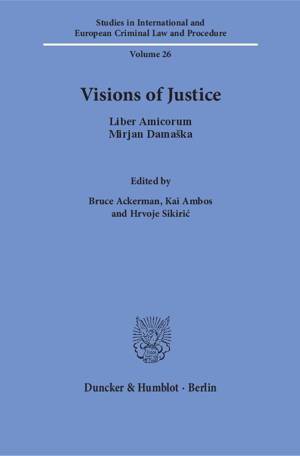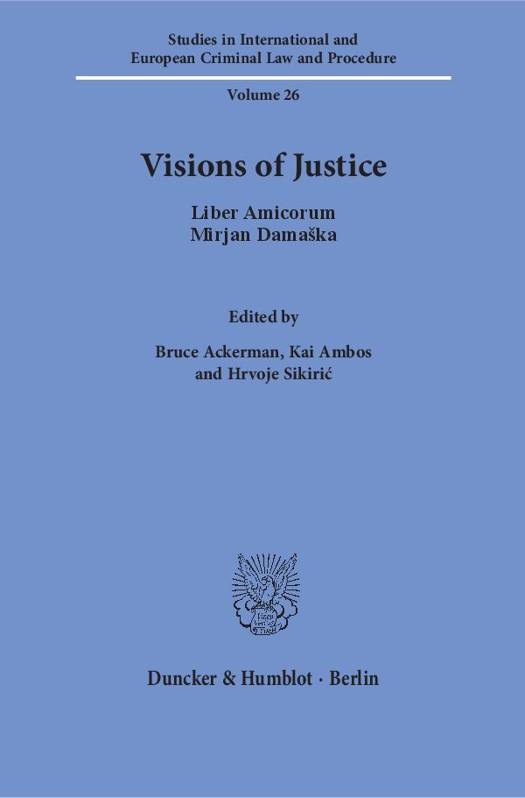
- Afhalen na 1 uur in een winkel met voorraad
- Gratis thuislevering in België vanaf € 30
- Ruim aanbod met 7 miljoen producten
- Afhalen na 1 uur in een winkel met voorraad
- Gratis thuislevering in België vanaf € 30
- Ruim aanbod met 7 miljoen producten
Zoeken
Omschrijving
This book is a collection of essays presented at the international conference "The Administration of Justice - Past Experience and Challenges for the Future", held in May 2015 in Cavtat, Croatia in honour of Mirjan Damaka, Sterling Professor of Law at Yale Law School. The conference was co-organized by the University of Zagreb Faculty of Law, Professor Damaka's first academic home, and the Marija and Mirjan Damaka Foundation, established by him and his wife as expression of their affection towards their Alma Mater and Croatia. Twenty-six contributors - leading scholars in common law, civil law and the Far Eastern traditions - re-examine from different angles in an original, profound and insightful way all three key areas of his seminal and path-breaking monumental scholarship. The papers cover comparative and foreign procedure, the law of evidence and international criminal law, revealing the depth, richness and far-reaching nature of Damaka's opus. The conclusion is unanimous. In spite of decades that have passed the ideas and insights expressed in Damaka's scholarship did not lose their freshness and originality, moreover their influence continues today. Visions of Justice is an excellent piece of scholarship in its own right which will be of interest to criminal and evidence lawyers, as well as those with more general comparative interests.
Specificaties
Betrokkenen
- Auteur(s):
- Uitgeverij:
Inhoud
- Aantal bladzijden:
- 469
- Taal:
- Engels
- Reeks:
- Reeksnummer:
- nr. 26
Eigenschappen
- Productcode (EAN):
- 9783428150229
- Verschijningsdatum:
- 21/09/2016
- Uitvoering:
- Hardcover
- Formaat:
- Genaaid
- Afmetingen:
- 155 mm x 231 mm
- Gewicht:
- 7388 g

Alleen bij Standaard Boekhandel
+ 437 punten op je klantenkaart van Standaard Boekhandel
Beoordelingen
We publiceren alleen reviews die voldoen aan de voorwaarden voor reviews. Bekijk onze voorwaarden voor reviews.








